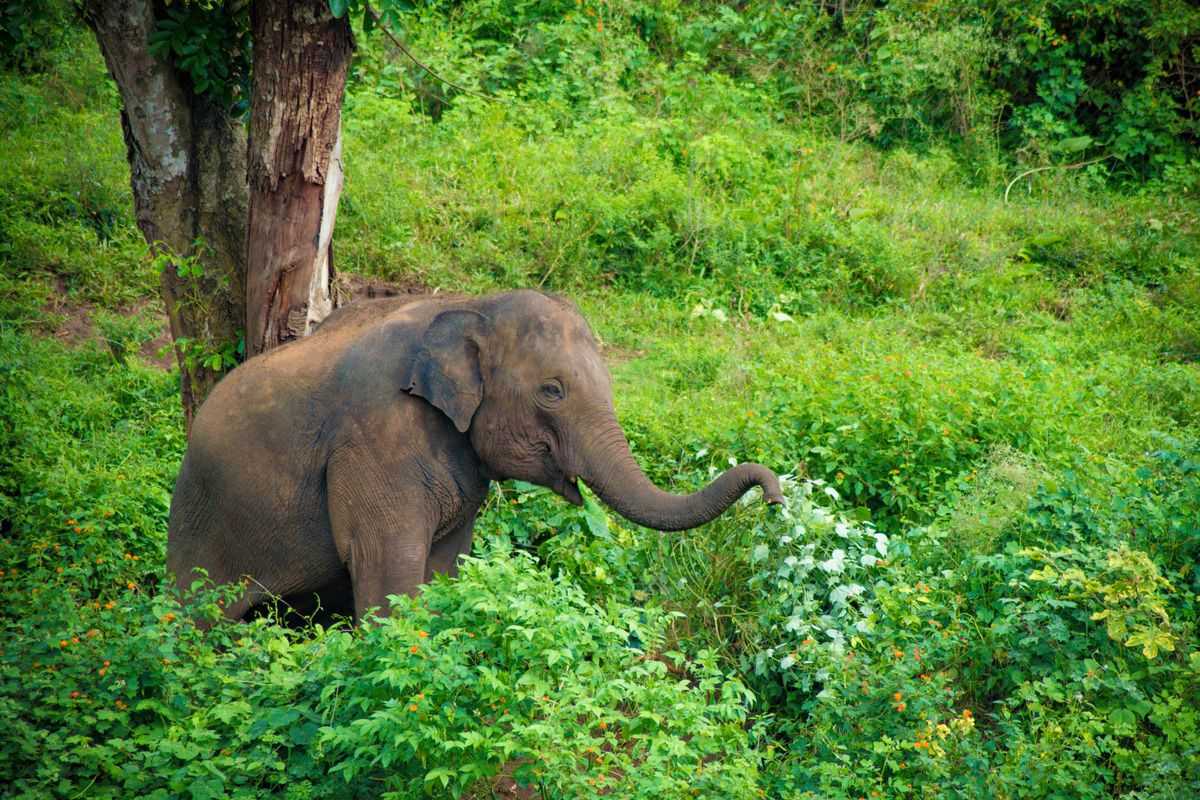Tigeress tranquilised, captured as it ventures near village
Forest officials have tranquilised and captured a tigress that was venturing
The baby elephant responded to the formula milk for human infants, which contains less fat than elephant milk.

Representational image. (Photo: Getty Images)
The Dudhwa National Park in Uttar Pradesh will declare baby elephant Durga as its mascot for the tourist season starting November 16.
Durga has been extremely popular with tourists. She is said to be friendly and allows tourists, especially children to click selfies with her.
Advertisement
According to field director Sanjay, “Dudhwa is all set to give tourists a better experience in this season. Internal roads and routes are being developed and repaired. We are planning to introduce an elephant safari. A pregnant rhino may also deliver the child in the coming weeks. Dudhwa’s tiger census is also expected to be announced before the start of the tourism season.”
Advertisement
Talking about Durga, he said that she was barely three-months old when she was found orphaned in Najibabad forest division of Bijnor last year.
She was brought to Dudhwa on the first day of Navratri, where former deputy director Mahaveer Kaujalgi named her Durga.
She is currently at the park’s camp office, with mahout Irshad as her handler. Durga, who was extremely weak when brought to Dudhwa as she had not been fed mother’s milk for a while, now follows instructions and displays all characteristics of an obedient child now, say zoo officials.
Officials took the advice of Dr K. K. Sharma, a pachyderm expert from WWF-India, and Dr Aditi Sharma, veterinarian from Rajaji Tiger Reserve, to rear Durga by hand.
The baby elephant responded to the formula milk for human infants, which contains less fat than elephant milk.
Meanwhile, in a related development, forest officials said that a herd of 30 wild elephants that had terrorised villages around Mailani and Kishanpur ranges of Dudhwa Tiger Reserve (DTR) has returned to Nepal via Tatarganj and Laghgha-Baghgha forest range in Pilibhit Tiger Reserve.
The elephants have left a trail of destruction, trampling upon several acres of standing crops. Kishanpur falls under the core zone, while Mailani range is the buffer area of DTR.
After arriving in India from Nepal, the wild elephants split into two herds and moved towards Kishanpur and Mailani ranges. The forest department was continuously monitoring the herds to minimise the possibility of man-animal conflict.
Deputy director, DTR buffer, Anil Patel monitored the elephants and continuously coordinating with forest teams to provide a smooth passage to the pachyderms to Nepal, official said.
Advertisement